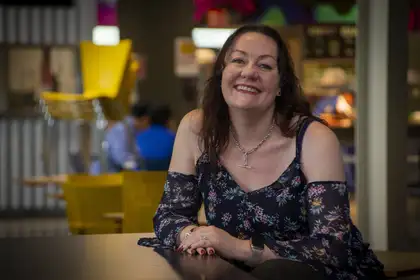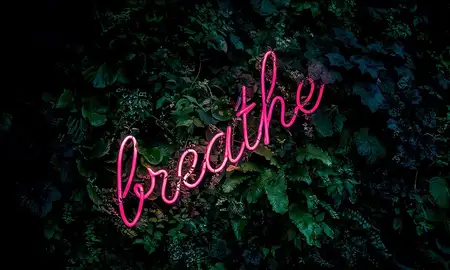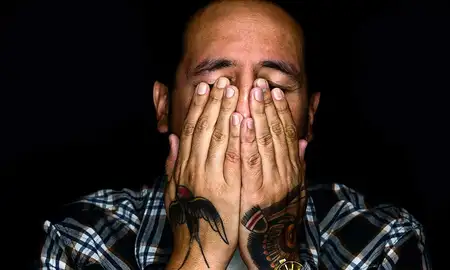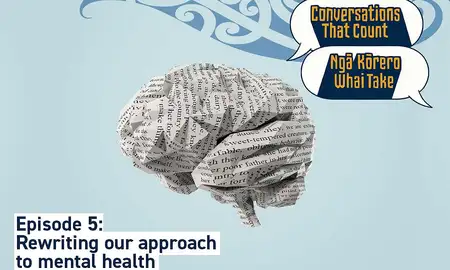
Dr Kirsty Ross.
It is timely that I am writing this as the traffic light system and covid restrictions are lifted and we are looking to reconnect with the world. As we mark Mental Health Awareness Week, thinking about ways to reconnect – with ourselves, with others, with places, and with activities - is important as we enter into a new phase of our lives.
Mental health involves not just the absence of significant distress, but also the presence of positive health and wellbeing. A holistic view of health involves attending to your physical health, your emotional wellbeing, your connections with loved ones, and your spirituality (Te Whare Tapa Wha, Sir Mason Durie, 1984), as well as living by your values. I use the term ‘significant distress’ deliberately, as life is full of ups and downs, and these should not be interpreted as being a sign of something wrong.
Emotions are part of living a full life, giving things a try, and engaging with activities and people we care about. For example, anxiety and nervousness are part of doing something we care about and that we might also be excited about. Sadness about a friend moving away or a relationship ending is a sign that we cared about someone, and we will miss their presence in our life. Emotions are part of experiences and making space for a full range of emotions is important if we are to reconnect with people, places, and things that are meaningful to us.
Spending the past two years in the height of a pandemic has been a process of constant readjustment, reacting to changes that occurred frequently and unpredictably. We have learnt how resilient we are, particularly when we are connected to others and supported by them as a collective. Strength in numbers, sharing our experiences of a catastrophic world event that we all went through, and feeling that we were not alone was helpful for our mental health during an incredibly difficult time.
Now that we are in a period of stability, I am sure some people will feel pressure to ‘get back to normal/the way things were’. However, this might feel overwhelming after the restrictions we have lived by, that were there to keep ourselves and the vulnerable members of our community safe. I want to encourage people to pause, breathe and take a moment to just ‘be’ before adding more onto your plate. I have often reflected on how society sends a message of ‘progress’ as meaning moving forward, getting ahead, doing more. Ironically, I think that progress can sometimes means standing still, paring back, selectively pruning from our lives to create time and space for things that are truly meaningful and in line with our values, along with the things in life we have to do.
So, it is a good time to think about what choices from the past two years has been useful and that you want to carry forward. It is also a good time to think about the things you would like to let go of and leave behind. What are the things you were unable to do over the past two years that you have really missed and want to add back into your life? Who are the people that you have been unable to physically spend time with that you want to reconnect with kanohi ki te kanohi (face to face)? What are the places that fill your soul and bring you a sense of peace that you wish to visit and spend time in?
But importantly, I’d encourage you to take your time to build these reconnections back into your life. We got used to less noise, less busyness, fewer commitments. We got used to more quiet, and smaller numbers of people. I know there will be some who cannot wait to build busyness, socialising and noise back into their lives, and will thrive on this after being unable to live in their desired way for the past two years. But others will also feel pressure to do this when they have found the quiet and slower pace has worked for them.
There is no right or wrong way to go about reconnecting in this next phase. What I would encourage people to do first and foremost is connect with yourself and check in with what has worked for you and what you have missed. Take some time to visualise what your ideal picture of health and wellbeing looks like, who that includes, the places you feel connected to, and the steps that you might take to move towards health. There is no rush, we have time. Take things at the pace that works for you, take time at each step to let yourself adjust and enjoy the expanded horizons of your life.
Monitor your wellbeing and how helpful and workable your actions are, and tune in to your emotions and thoughts. Don’t be dictated by your emotions as you move forward in this new stage. Pay attention to your feelings, but also think about what is important and necessary in your life. Be brave and recognise that change brings emotions. Combine your ability to think and reason with your feelings to make wise choices about what the best way is to reconnect with the threads of your life that you had to slacken your hold on during the height of the pandemic.
You don’t have to pick up all the threads all at once. Look at a medium to long term plan; pace yourself, be kind to yourself and realise that reconnection can be uplifting when it is done in a self-compassionate way that recognises we have been through an awful lot in the past two years. Be selective about what/who you introduce into your life; be mindful about how you are doing; and be purposeful in making choices that are meaningful for you and the life you want for you and your whānau.
So breathe, step forward, connect with people/places/activities you care about that bring value and joy to your world – and then rest and let yourself adjust before you take the next steps towards the best life for you and your loved ones.
Dr Kirsty Ross is a Senior Lecturer in Clinical Psychology, at Massey University’s School of Psychology.
Related news
Opinion: “Are you ok?"
Wellbeing is something that is worthy of putting effort and time into each day, but events like Mental Health Awareness Week remind us of the importance of taking stock and asking ourselves and others "Are you ok?"

Managing our wellbeing in latest COVID-19 lockdown
Clinical psychologist Dr Kirsty Ross offers advice on how we can emotionally navigate the latest COVID-19 outbreak and Alert Level 4 lockdown.

Does our approach to mental health need to be re-written?
For the last episode of Conversations That Count - Ngā Kōrero Whai Take we explore NZ's current approach to mental health and well being and question whether it's time to re-think how services are provided.
